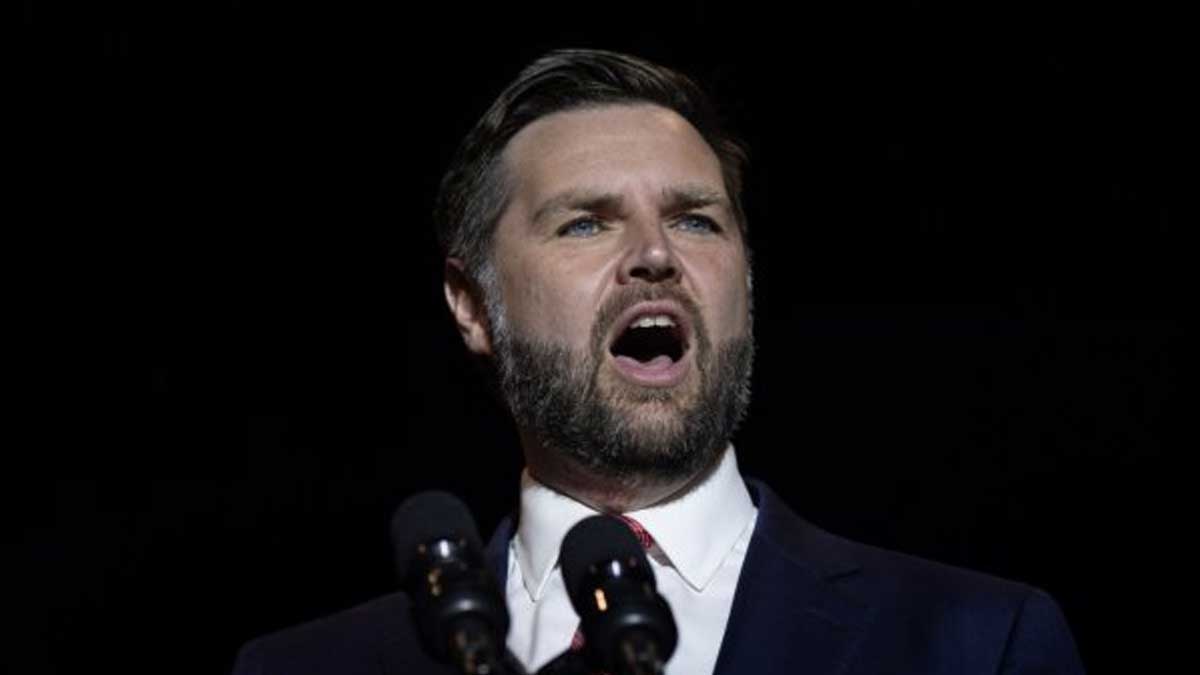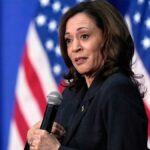- Home
- Billionaires
- Investing Newsletters
- 193CC 1000
- Article Layout 2
- Article Layout 3
- Article Layout 4
- Article Layout 5
- Article Layout 6
- Article Layout 7
- Article Layout 8
- Article Layout 9
- Article Layout 10
- Article Layout 11
- Article Layout 12
- Article Layout 13
- Article Layout 14
- Article Sidebar
- Post Format
- pages
- Archive Layouts
- Post Gallery
- Post Video Background
- Post Review
- Sponsored Post
- Leadership
- Business
- Money
- Small Business
- Innovation
- Shop
Recent Posts
JD Vance ‘Pissed’ About Not Debating Kamala Harris

In his first solo rally as the Republican vice presidential nominee, Senator JD Vance delivered a scathing critique of the Democrats and President Joe Biden’s recent political actions. Speaking to a crowd in his hometown of Middletown, Ohio, Vance expressed his discontent with Biden’s decision to exit the presidential race and endorse Vice President Kamala Harris. Vance characterized Biden’s withdrawal and endorsement as “a threat to democracy,” accusing the Democrats of undermining the electoral process and portraying Republicans as the stalwart defenders of democratic values. This critique reflects Vance’s broader campaign narrative, which positions the Republican Party as a bulwark against perceived threats to democratic integrity.
Vance’s rally marked a significant moment in his campaign, as it was his first appearance as the vice presidential nominee unaccompanied by other high-profile figures. During his speech, he addressed the issue of his personal desire to debate Harris directly. Vance had anticipated a debate with the vice president, an opportunity he believed would allow him to present his arguments and engage with Harris on critical issues facing the country. However, he revealed that he was informed that the debate slot would be filled by former President Donald Trump instead. Vance, with a wry smile, admitted his frustration, saying, “I’m kind of pissed off about that if I’m being honest with you.” This admission underscores Vance’s feeling of being sidelined in a key campaign moment and highlights the internal tensions within the Republican strategy.
The decision regarding the debate between Vance and Harris is emblematic of the broader strategic maneuvering within the Trump campaign. Prior to Harris officially launching her presidential campaign, the Trump camp had expressed doubts about Biden’s ability to secure the Democratic nomination, suggesting that it was premature to schedule a debate between Vance and Harris. This stance reflects the Trump campaign’s strategy of positioning debates and campaign events in alignment with their predictions about the Democratic race and their broader electoral strategy.
In addition to addressing his personal frustrations, Vance used the rally as a platform to make a broader appeal to Democrats. He criticized Biden’s withdrawal as indicative of a failure to uphold democratic principles and invited Democrats to join the Republican Party. Vance argued that the GOP is committed to engaging in honest political debate and persuading voters through genuine dialogue rather than resorting to deceptive tactics. This appeal to Democrats is part of Vance’s effort to broaden his political base and attract voters disillusioned with the current Democratic leadership.
Senator George Lang, R-OH, who introduced Vance at the rally, echoed the high stakes of the upcoming election, framing it as a pivotal moment for the country’s future. Lang expressed the belief that Trump and his running mate represent “the last chance to save our country,” and issued a stark warning about the potential consequences of a Republican loss. He suggested that failing to win the election could lead to severe repercussions, including the need for a civil war to preserve the nation’s values. This dramatic rhetoric underscores the heightened political tensions and the high stakes that both parties perceive in the upcoming election.
The broader context of the presidential race also plays a significant role in shaping the debate dynamics. Biden’s decision to step down and endorse Harris has shifted the focus to potential debates between Harris and Trump. Following Biden’s underwhelming debate performance against Trump in late June, there was considerable pressure on Biden to withdraw from the race. Biden’s subsequent endorsement of Harris and her acceptance of a debate invitation have set the stage for future political confrontations. Harris has agreed to debate on either July 23 or August 13, with CBS extending the offer. However, the Trump campaign has expressed a preference for a debate broadcasted by Fox News, and the terms of a debate remain under negotiation.
In terms of electoral prospects, Harris’s candidacy presents a mixed picture. Analysis from FiveThirtyEight suggests that Harris has a slightly better chance of winning the Electoral College compared to Biden’s previous standing. Despite this, Harris faces significant challenges, particularly in swing states, with her odds of winning the presidency currently standing at 48% compared to Trump’s 31%. The evolving dynamics of the presidential race, including the debate scheduling and strategic positioning, will likely play a crucial role in shaping the outcome of the election.
Recent Posts
Categories
- 193cc Digital Assets2
- 5G1
- Aerospace & Defense46
- AI37
- Arts3
- Banking & Insurance11
- Big Data3
- Billionaires449
- Boats & Planes1
- Business328
- Careers13
- Cars & Bikes76
- CEO Network1
- CFO Network17
- CHRO Network1
- CIO Network1
- Cloud10
- CMO Network18
- Commercial Real Estate7
- Consultant1
- Consumer Tech180
- CxO1
- Cybersecurity68
- Dining1
- Diversity, Equity & Inclusion4
- Education7
- Energy8
- Enterprise Tech29
- Events11
- Fintech1
- Food & Drink2
- Franchises1
- Freelance1
- Future Of Work2
- Games141
- GIG1
- Healthcare78
- Hollywood & Entertainment186
- Houses1
- Innovation42
- Investing2
- Investing Newsletters4
- Leadership65
- Lifestyle11
- Manufacturing1
- Markets20
- Media193
- Mobile phone1
- Money13
- Personal Finance2
- Policy567
- Real Estate1
- Research6
- Retail1
- Retirement1
- Small Business1
- SportsMoney33
- Style & Beauty1
- Success Income1
- Taxes2
- Travel10
- Uncategorized8
- Vices1
- Watches & Jewelry2
- world's billionaires418
Related Articles
Trump Moves $4B Stake in Truth Social Parent, Stock Drops 6%
Donald Trump recently transferred his 57% stake in Trump Media & Technology...
By 193cc Agency CouncilDecember 20, 2024House Rejects Trump-Backed Funding Bill, Shutdown Looms
The U.S. House of Representatives rejected a new government funding bill on...
By 193cc Agency CouncilDecember 20, 2024Trump Named Time’s Person of the Year for Second Time
On Thursday, Time magazine honored Donald Trump as its “Person of the...
By 193cc Agency CouncilDecember 12, 2024Meta Donates $1 Million to Trump’s Inaugural Fund
Meta, the parent company of Facebook and Instagram, has confirmed a $1...
By 193cc Agency CouncilDecember 12, 2024















Leave a comment